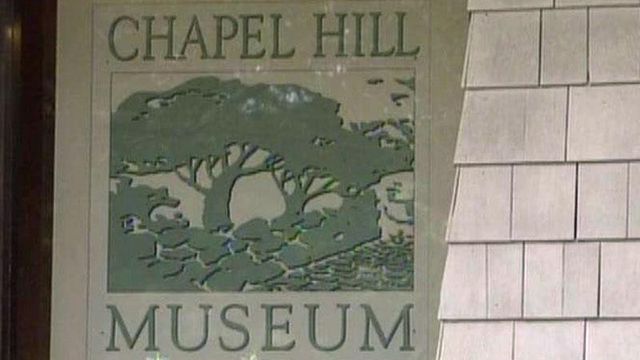Economy turns museums into history lessons
The Chapel Hill Museum and the Fayetteville Museum of Art have closed their doors in recent weeks, citing the difficulty in generating revenue as the economy continues to sputter.
Posted — UpdatedThe Chapel Hill Museum and the Fayetteville Museum of Art have closed their doors in recent weeks, citing the difficulty in generating revenue as the economy continues to sputter.
"I think you can blame a good piece of it on the economy. Even our large donors, over the last couple of years as the economy went down, we saw their donations go down," said Stephen Rich, treasurer for the Chapel Hill Museum.
"Unfortunately, we just felt the numbers weren't right. We just couldn't do it," Rich said.
Richard Sceiford, president of the North Carolina Museums Council, said he hasn't heard of any other museums in the state that are considering closing.
"Most of your private museums that have been around for a while have built up their funding to the point that they can survive," said Ken Howard, director of the North Carolina Museum of History.
Howard routinely speaks with other museum directors around the state, and he said that weathering the slow economy is challenging but not impossible.
"Donations are harder to come by these days," he said. "We are hoping for better economic times. We are looking for ways to generate additional income outside of our normal sources."
For some museums, that means renting their buildings, while others have started charging for exhibits that have traditionally been free.
While the Fayetteville Museum of Art's website proclaims a hope that the 38-year-old museum will reopen someday, the Chapel Hill Museum is liquidating its assets, returning exhibits to the original owners and selling all the remaining items.
Rich said, for example, that the brothers who own the first Model T ever sold in Chapel Hill might be willing to sell it for the right price.
The museum plans to sell anything left inside, including furniture and display cases, from 10 a.m. to 4 p.m. Aug. 21-22 and Aug. 28-29.
The sell-off of the museum's assets takes away more than memories, Howard said.
"These (exhibits and displays) are extremely important to our culture, and without our culture, who are we?" he said.
• Credits
Copyright 2024 by Capitol Broadcasting Company. All rights reserved. This material may not be published, broadcast, rewritten or redistributed.





